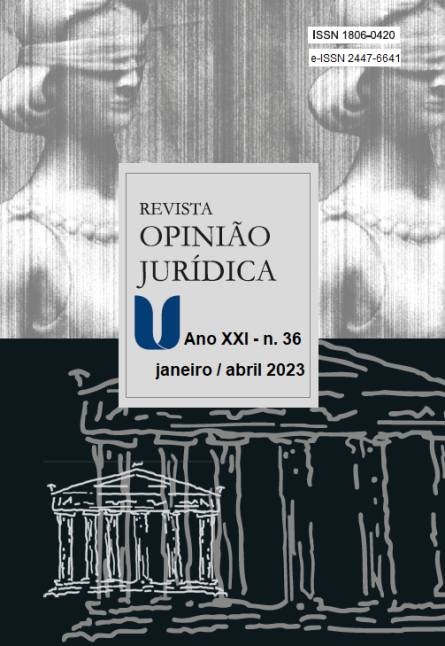FREEDOM OF CONTRACT AND JUDICIAL INTERVENTION: DOES THE COURT HAVE THE RIGHT?
DOI:
https://doi.org/10.12662/2447-6641oj.v21i36.p205-221.2023Keywords:
corrective function, freedom of contract, Indonesia, judicial interventionAbstract
Objective: The paper aims to elaborate on the implementation of freedom of contract and judicial intervention taken by the Indonesian judiciary institutions in the event that a contract does not reflect the balance of rights and obligations of the parties. It also discusses several cases that expose the involvement of the court in upholding justice by intervening in the contract.
Methodology: The study is doctrinal legal research. It employed the statutory, conceptual, and case approach with prescriptive data analysis.
Results: The study reveals that the freedom of contract is not limitless. In certain conditions, the court can intervene the implementation of the contract in case the court found the party's position is inequal and led to the harmful consequences that detriment a certain party.
Contributions: It explores the restrictions of the freedom of contract principle by comprehensively explaining the reasoning behind its enforcement under the court’s authority. In addition, it clarifies the court's justification to perform a corrective function towards inequalities in contract performance.
Published
How to Cite
Issue
Section
License
CESSION OF COPYRIGHTS
The submission of articles to analysis for publication on Opinião Jurídica implies the author(s) transfers copyrights to Centro Universitário Christus – UNICHRISTUS for reproduction, publicizing, distribution, printing and publication, according to the Publication Norm 414R, Opin. Jur., Fortaleza, year 12, n. 16, p.1-414, Jan./Dec. 2014, costs to be bore by UNICHRISTUS, in whatever format or means that may or shall exist, in accordance to articles 49 and following of Federal Law 9.610/98.
1. In ceding copyrights, the author(s) agrees to do so in exclusivity, free of charge and for the totality of the work.
2. UNICHRISTUS may make the work, in its entirety or in parts, available for scholarly purposes, without altering its contents, except for small corrections that are deemed necessary.
3. The cession of copyrights is valid in all countries and for versions of the material in its original language or translated into a foreign language.
RESPONSIBILITY FOR THE CONTENT
By submitting an article, the author(s) declare to have sole responsibility for the content of the piece and is(are), therefore, responsible for any judicial or extrajudicial measures referring to it.
1. In case of joint authorship, all authors are considered collectively responsible, except when proved otherwise.



















